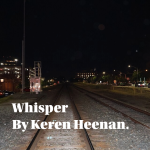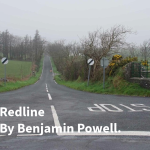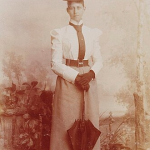By Satrio Nindyo Istiko.
I, Satrio Nindyo Istiko, student of 4/33 Sargent Street New Farm, in the State of Queensland, do solemnly and sincerely declare the followings:
My background
I was born on the 16th of August 1990 in Jakarta Timur, Indonesia. I was born the second, and last son of a Muslim father and a Catholic mother. My brother and I were raised as Muslims. When I was seventeen years old, I asked my parents if I could explore other religions, but they said no because they were committed to having a Muslim family. Even my mother promised she would convert to Islam one day.
Discrimination and abuse by family
At eighteen, I came out to my father and brother. I came home from a university entrance exam and saw my father with our pembantu [domestic worker]. As I confronted him, I told him we were both hurting my mother – him though his affair and me by being who I am. My father convinced me he would never have an affair again, and begged me to do two things: one, to never tell my mother of his affair, and, second, to let him tell her of my sexuality. As a son would to his father, I agreed.
My mother, who confessed she loved me more than my brother when I was about seven, betrayed me when she found out I was gay. She never expected me to be a deviant, saying that every sign that I was different was not of such nature. We had many fights, and one afternoon, I went into the kitchen and tried to cut my wrist with a knife, but she stopped me and said that only humans, weak in their belief in God, would attempt such a thing. I saw a psychologist under her order, who told me to practice my religion, whatever that was, to convert me back to normal.
Discrimination in education
At nineteen, I was accepted into a medical school in Jakarta, a place where the people, on the surface, acted as though they did not have any problems with my sexual orientation. I was tolerated to a certain extent, but a lecturer once told me to keep my distance from her five-year-old son when she brought him to work. A friend told me not to stand up against bullies to avoid putting the medical school to shame and when I went to do my rounds in hospitals, a supervisor told my peers to be careful around me.
Reasons for leaving Indonesia
I left Indonesia to undertake a master’s degree in health management at Queensland University of Technology, but I do not wish to go back because I can no longer face further discrimination, harassment, and bullying. Indonesian authorities do not provide me any protection and would persecute me instead.
Why I fear returning to Indonesia
Since I came out, it was my older brother who learned to accept me as a gay man. We were sitting on the balcony one evening, looking up at the moon, when he asked me if I was planning to leave our family. I discovered in that moment the reason why my family rejected me: the deep-seated fear that I would leave them because I no longer saw the world the same way they did. I reassured him that being gay had nothing to do with leaving him and our parents, and even now that I live in Brisbane, I still force myself to call my parents despite the violence in their well-intended wishes and advice for me. Let parents be parents, I tell myself.
One time, my brother told me that my father questioned his decision to reject me, fearing it would push me away, even encouraging my mother to accept me as I am. But she slapped him. Twice, I heard from my brother. It was funny: A Muslim man, who thought he knew me as a person, was trying to accept me – a total opposite of how the Indonesian government uses Islam to punish people like myself; meanwhile, a Catholic woman, who knew me much better than my father, believed that I was misguided in life. I wish the Portuguese never brought Catholicism to Indonesia.
Now that I have been in Australia for ten months, I believe that my life will be at risk if I return to live and work in Indonesia because I will have no support. I do not have the same level of strength that I had in the past, as I now live with HIV.
Fear of persecution as a gay doctor
I arrived in Australia on the 15th of February 2016. Four days later, the Indonesian Psychiatric Association (IPA) released a statement that categorised homosexuals as Orang dengan Masalah Kejiwaan (People with a Mental Health Problem) who should undergo treatment to prevent them from becoming Orang dengan Gangguan Jiwa (People with a Mental Health Disorder). Being an out gay man who just graduated from medical school, I am now in fear of not being able to work as a doctor. As in the case of Zulkifly Kadri from 2008 – a gay Muslim doctor who once worked in Jakarta – a rumour about his homosexuality was enough to cost him his employment at a hospital and a clinic he worked at for years. When he went to court, the judge only focused on his sexual orientation, not his performance as a medical doctor. The US Immigration Judge Leonard Shapiro then granted him asylum[1]. This case supports my fear, preventing me from going to the authorities (police, medical court, or civil court), especially with the worsening attacks on lesbian, gay, bisexual and transgender (LGBTQ+) people.
As I have always been open about my sexual orientation, including on social media such as Instagram, Facebook and Linkedin, I cannot go back to become a closeted homosexual. I have always been involved in LGBTQ+ activism, such as writing articles for Indonesian LGBTQ+ youth website, Brondongmanis, and writing coverage for an LGBTQ+ and human rights film festival, Q! Fest, for a digital film magazine.
The Indonesian medical community is small, and with the increasing widespread violence towards the LGBTQ+ community, I cannot simply move to other provinces or change my career. This growing violence, which has already manifested into physical violence by religious groups and members of the police force, is well-reported by the United Nations Development Programme (UNDP) in 2014 and Human Rights Watch (HRC) in 2016.
The IPA’s statement contributed to this sudden development, and the present climate is such that there is an ongoing effort to criminalise sexual acts between consenting same-sex adults at the national level.
Indonesia’s Constitutional Court is currently holding hearings on this matter with the Judges reportedly in favour of the proposal. Deriving from “vague ill-defined notions of mortality”, this current situation not only strengthens my fear of not being able to earn a living, but also of being a victim of brutal violence.
Although the criminalisation law has not yet passed, police officers in two different provinces, Jawa Tengah and Sulawesi Selatan, have already arrested gay men; in Jawa Tengah, they arrested two gay men because they got married and held a wedding, attended by parents, families and friends, and in Sulawesi Selatan, another couple was arrested because their photo went viral on Facebook. Such treatment, or even worse, can happen to me because of how open I am in my everyday life, both online and face-to-face with other people.
Fear of further persecution as an HIV-positive gay man
After coming to Australia in March 2016, I was diagnosed with HIV after a sexual encounter with an Australian man, and this diagnosis further puts me at risk of discrimination and persecution. In Indonesia, reports of health professionals stigmatising, discriminating, and disclosing HIV status in breach of confidentiality are common. This has enormous consequences because HIV status is considered a liability in getting a job as a doctor (or in any other professions for that matter). I am further disadvantaged because the anti-discrimination policy towards people living with HIV is poorly implemented, contributing to a high unemployment rate for Indonesians who live with HIV.
Returning to live in Indonesia will also mean changing my medication. I am on T, one of the contemporary regimens for first line HIV treatment. I access T through a pharmaceutical company’s ‘compassionate access scheme’ as I cannot afford to purchase it at a full price. If I go back to Indonesia, I must switch my treatment to an alternative medication because T is not available in this country or in many other low- and middle-income countries. This is because the pharmaceutical company, which is based in a Western country, has the power to decide the drug prices.
Moving back to Indonesia is dangerous as changing medication can increase the possibility of developing resistance, and the toxicity of the alternative medication is higher compared to T. Successfully navigating the change to such suboptimal treatment seem to be almost impossible, along with the likelihood of economic and psychological persecution resulting from potential unlawful HIV status disclosure by the health professionals.
I feel that living in Indonesia as an HIV-positive gay man will be comparable to living in a vicious cycle of hopelessness, caused by the oppressions towards LGBTQ+ communities and people living with HIV, alongside global inequities in access to HIV treatment.
Relocation in Indonesia
As discussed above, I cannot relocate to anywhere else in Indonesia. Jakarta may be a metropolitan, but it was in this place that I experienced most of the harms mentioned in the previous points. LGBTQ+ communities in Jakarta have faced increasing discrimination and persecution, with worse cases in other parts in Indonesia. HIV-positive people also deal with significant discriminations and economic persecutions that lead to unemployment in Jakarta. There would be no benefit in moving to another part of the country.
State protection
As discussed above, I cannot ask for protection from the Indonesian government because much of my feared persecution is carried out or supported by the State.
Relocation outside Indonesia
Apart from Australia, I do not have any rights to reside in third countries. Therefore, I request protection in Australia.
I make this solemn declaration by virtue of the Statutory Declaration Act 1959.
Declared at West End, Brisbane on 1 December 2016.
[1] Though this decision was overturned, it was successfully appealed in Kadri v. Mukasey, 06-2599 (1ST CIR. 2008).







